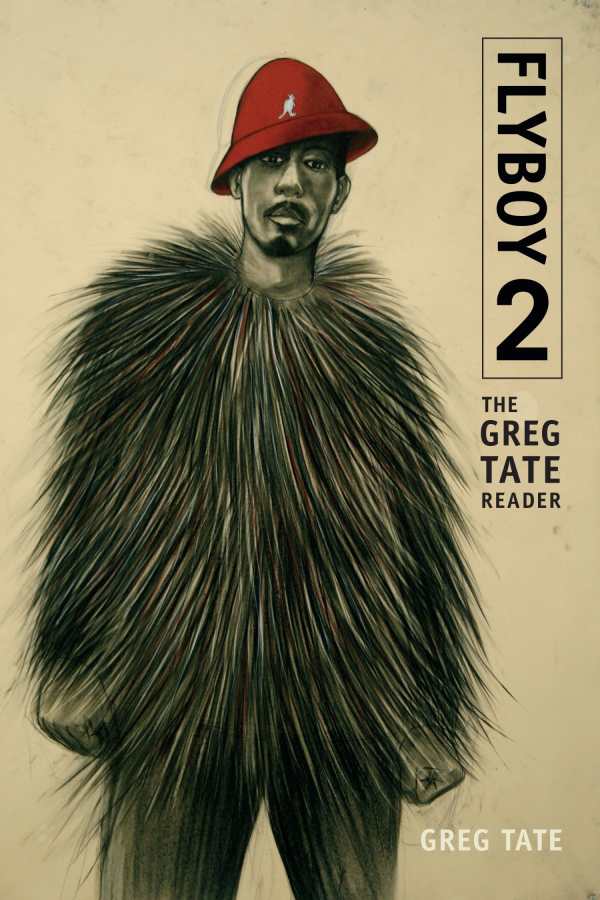Flyboy 2
The Greg Tate Reader
Tate succeeds in luring the audience by narrating as much from the heart as from the head.
Flyboy 2: The Greg Tate Reader is an immersive, fluid, and genre-bending collection of commentary, essays, and exposition of the self, a beautiful text solidly grounded in the critical theories of late twentieth- and early twenty-first-century academia. Compiling works previously published in the Village Voice, Spin, VIBE, and elsewhere, at its heart this is a book that loudly proclaims, “Our Black lives, creative acts, political plots, and trans-African legacies been mattering HERE for a good long while.”
The collection spans a wide range of subjects and subjectivities, tangling and twisting together an inherited and feminist-influenced refusal to pretend at authorial distance, or objectivity. Whether discussing music, literature, the eccentricities of being a straight man embraced by his local dyke community, or the social politics of “Blacknuss” in America, Tate enters the medium, his voice flowing from the page with rhythms and soundscapes inspired by and inherited from the artists he admires, creating a living collaboration capturing memory and reverberating it into the next and future generations.
While no writer can expect his interpretations to resonate with all readers, Tate succeeds in luring the audience by retaining authorial integrity and narrating as much from the heart as from the head. Tate’s sense of whimsy focuses this collection’s lens, black humor revealing dark realities even more sharply, boldly contrasting against too-oft-diluted mainstream commentary written by overly cautious critics concerned with social correctness. Members of liberal social movements driven by reformist agendas will certainly find themselves on the receiving end of a much-needed wake-up slap, inherent throughout the book but perhaps most explicitly in Tate’s piece “Top Ten Reasons Why So Few Black Women Were Down to Occupy Wall Street Plus Four More.”
Flyboy 2 necessitates an openness to coming to know and believe in the ferocious veracity of the author’s perspective. Never shying away from allowing his own personality to shine through, it is clear Tate has nothing to hide, and everything to gain, from making a document that makes art and academics inseparable.
Reviewed by
Patty Comeau
Disclosure: This article is not an endorsement, but a review. The publisher of this book provided free copies of the book to have their book reviewed by a professional reviewer. No fee was paid by the publisher for this review. Foreword Reviews only recommends books that we love. Foreword Magazine, Inc. is disclosing this in accordance with the Federal Trade Commission’s 16 CFR, Part 255.

